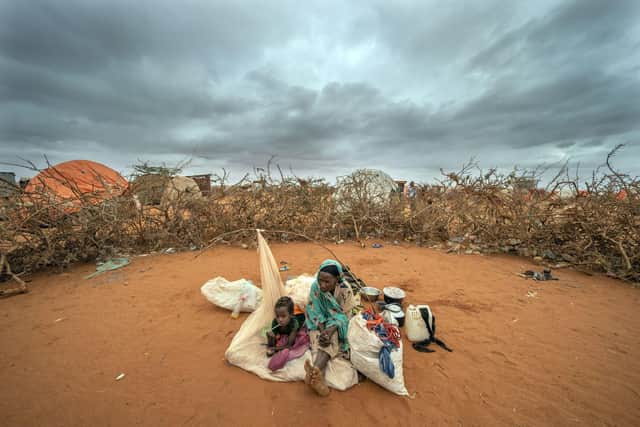Climate change report: Humanity is running out of time to stop runaway climate change and ecological disaster, UN report warns
Scientists have said deep, rapid and sustained cuts to greenhouse gas emissions are required to restrict global warming and avoid the worst impacts on people and the planet.
The AR6 Synthesis Report from the Intergovernmental Panel on Climate Change (IPCC) states there is “a rapidly closing window of opportunity to secure a liveable and sustainable future for all” and stresses the coming decade is crucial for efforts to stave off runaway climate change.
Advertisement
Hide AdAdvertisement
Hide AdUN chief Antonio Guterres has described the publication as a “survival guide for humanity”, setting out the need for all people, all companies and all sectors to drastically ramp up measures to reduce emissions and reach carbon neutrality even sooner than planned.
Action must involve “everything everywhere all at once”, he said, and countries must bring forward their net zero plans by ten years.
IPCC analysts predict the world will hit 1.5C of heating above pre-industrial levels – the danger limit set out in the Paris Agreement, above which scientists say the climate will become dangerously unstable – in the early 2030s, but says redoubled carbon-cutting efforts could lessen the effects and reduce future temperatures.
“The report is pretty clear that we will, almost regardless of emissions scenarios, reach 1.5C in the first half of the next decade,” IPCC author Professor Peter Thorne said.
"There is some uncertainty about that. The real question is whether our collective choices between now and then mean we reach and stabilise at or around 1.5C or whether we blast right through 1.5C, crash through 2C and keep going.”


Burning fossil fuels has already warmed the planet by 1.1C in the past couple of centuries, resulting in more frequent extreme weather and increased food and water scarcity for millions of people.
Human activities – primarily burning fossil fuels – have unequivocally caused this warming, the report says, with current policies set to push up global temperatures by a further 2C above 1850s levels by 2100. This could cause catastrophic loss of life for species around the equator while exposing millions of people to dangerous levels of heat and humidity.
Increasing green energy production, changes to farming practices and deploying carbon-removal technology are among the solutions recommended to help avert the looming environmental disaster.
Advertisement
Hide AdAdvertisement
Hide AdIPCC chair Hoesung Lee said: “This Synthesis Report underscores the urgency of taking more ambitious action and shows that if we act now, we can still secure a liveable sustainable future for all.”
Every fraction of warming escalates the severity of climate change impacts such as heatwaves, droughts, storms and flooding, while new evidence has shown even small changes can wreak havoc on communities.
Global surface temperature has increased faster since 1970 than in any other 50-year period over the past 2,000 years and in 2019 atmospheric carbon dioxide concentrations were higher than at any time in at least two million years.
Limiting warming to 1.5C requires carbon dioxide emissions to fall by 48 per cent by 2030, 65 per cent by 2035, 80 per cent by 2040 and 99 per cent by 2050.
Comments
Want to join the conversation? Please or to comment on this article.